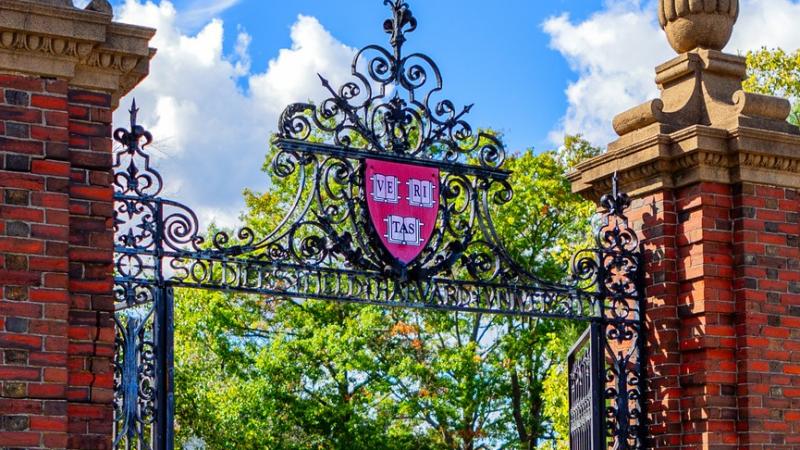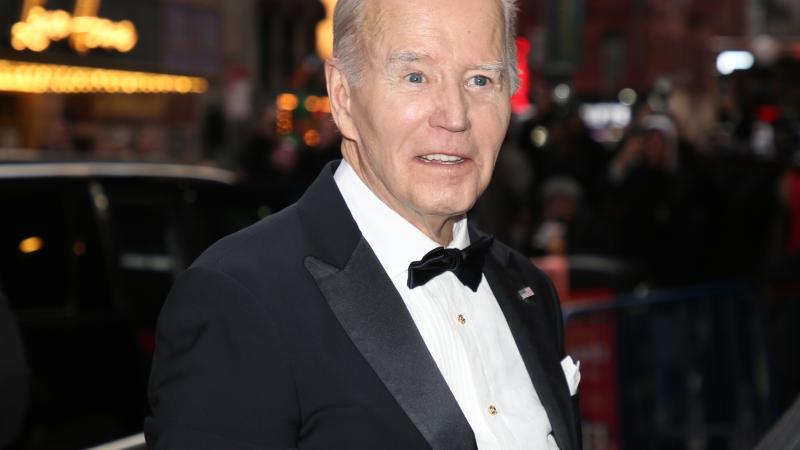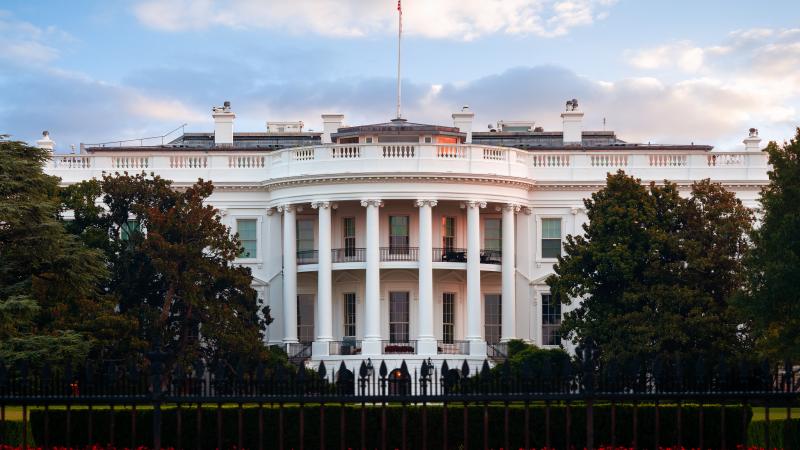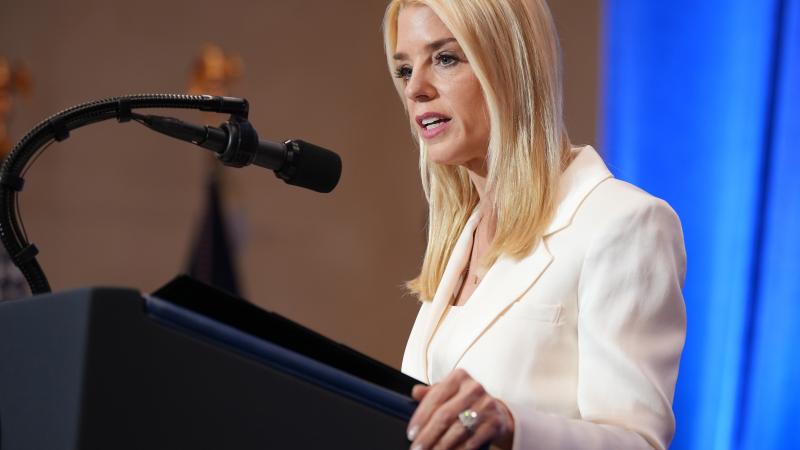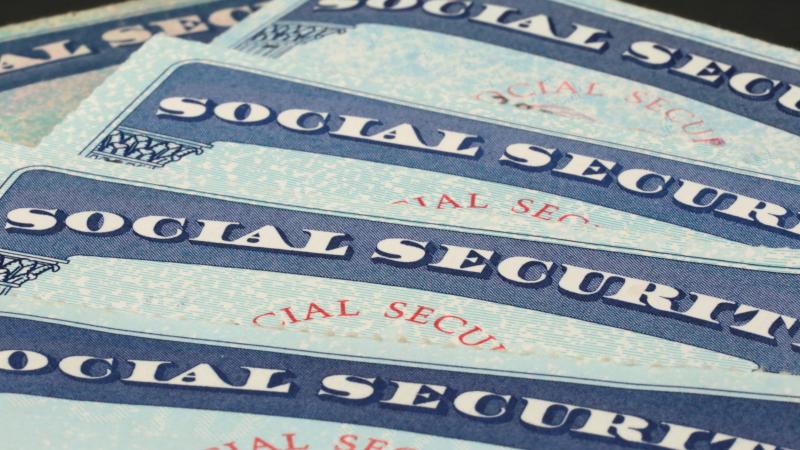Satire site Babylon Bee defends Florida's social media regulation law in court
"At some point these algorithms start looking more like the result of an intelligent design," website's lawyer says.
Gov. Ron DeSantis has a surprising backer in his quest to reinstate Florida's controversial social media regulation law: satirists.
The Florida-based Babylon Bee, whose japery promotes a conservative Christian perspective but has also repeatedly lampooned Donald Trump, filed a friend-of-the-court brief in favor of S.B. 7072.
CEO Seth Dillon told Just the News it was the site's first foray into such legal briefs but not legal warnings. A threatened defamation suit convinced The New York Times to remove a reference to the Bee as "far-right misinformation ... under the guise of satire."
It's not the first time a satirist has filed a friend-of-the-court brief, even this year. Author P.J. O'Rourke asked a federal appeals court to protect joke tweets from regulators and the Supreme Court to protect student speech from "omniscient school administration."
The law emphasizes Florida's "substantial interest in protecting its residents from inconsistent and unfair actions by social media platforms," which are the "new public town square" and functionally "common carriers."
It punishes large social media platforms for taking "any action in bad faith," including "unfairly" censoring, shadow-banning, deplatforming or applying "post-prioritization algorithms" to user accounts.
Social media providers have repeatedly sanctioned the Bee's accounts for allegedly spreading misinformation or promoting harm, most recently Monday, when Instagram removed a post that said a new father bought a tank to "safely drive newborn home from hospital."
The Facebook-owned service deemed the Aug. 31 post "incitement," according to a screenshot by Dillon. "We would like to apologize for any harm we've caused," he tweeted. "Tanks and other weapons of war are to be left behind for the Taliban; they are not to be joked about."
While the Bee successfully appealed that removal, "it's unbelievably absurd how stark the contrast is" between how social media providers treat the Bee versus users who call for violence and "unrest in the streets," Dillon said in a phone interview. (Instagram continues to hide a post about President Biden doing the "milk crate challenge" behind a "sensitive content" warning.)
"At some point these algorithms" stop looking like one-off mistakes and "start looking more like the result of an intelligent design," Dillon's lawyer Jordan Pratt of First Liberty Institute said on the call.
The Bee is now wary of Facebook's planned implementation of "a new satire framework" that rules out humor that "punch[es] down," because it communicates "hateful ideas."
Dillon worries that could be used to shut down jokes about women, while Pratt wants to know if Facebook's newly revealed XCheck whitelist for elite users will also exempt them from the new framework.
The Bee once drew more than 80% of its traffic from Facebook, a figure that has plunged to 20-30% "and declining sharply," according to Dillon. While he said the Bee can "at minimum cover our costs" from paid subscriptions if it loses social media-driven ad revenue, Pratt asked how new users would then discover the Bee.
SCOTUS review needed
The Florida law has never taken effect because U.S. District Judge Robert Hinkle issued a preliminary injunction in June. He determined S.B. 7072 was "viewpoint-based" and largely preempted by Section 230 of the federal Communications Decency Act (CDA).
Lobbyists for social media companies have threatened to stop a similar Texas bill signed into law last week but not taking effect until November.
The Florida law is now before the 11th U.S. Circuit Court of Appeals, and the state put Facebook's censorship of the Bee for "obvious satirical content" on the first page of its opening brief.
Friend-of-the-court briefs — filed by the ACLU, Electronic Frontier Foundation, Authors Guild and several technology associations — are largely skewing against the law.
First Liberty is representing the Bee along with its real-news companion website, Not the Bee, the source of many of the brief's claims about social media's vastly different treatment of conservative content.
Foremost among them: Facebook's refusal to reinstate a Bee post it deemed "incitement" for using a Monty Python joke in the context of Amy Coney Barrett's Supreme Court confirmation hearings. Meanwhile, providers leave alone content such as Taliban "propaganda" and Chinese Communist Party "misinformation" about COVID-19.
If the law is upheld, the Bee can look forward to a potential windfall in damages from "censorship and shadow banning ... which would help keep the lights on and the satire servers running, not to mention remedy its injuries," according to Dillon, who said he couldn't ballpark how much the company might get.
The Florida law seeks only to hold social media providers "accountable to the image of neutrality that they project," requiring them to disclose "and evenhandedly apply" their own content standards, congruent with Section 230 of the CDA, the brief says. S.B. 7072 "protect[s] the public from deceptive corporate conduct."
It also helps providers resist government pressure to "target viewpoints and messages that the government disfavors." The brief cites public acknowledgments this year by President Biden and other senior officials that they are pressuring social media platforms to censor purported misinformation and hate.
"It doesn’t take a rocket (or political) scientist to foresee the very grave First Amendment concerns that this phenomenon poses," the brief says.
It's not disputable that "social media platforms systematically target conservative users and messages for censorship, selectively invoking vague policies against 'hate' and 'misinformation,'" the brief argues. "Under the plain text" of Section 230, "this bad-faith conduct does not qualify for civil immunity."
On the eve of the 2020 election, FCC Chairman Ajit Pai proposed a rulemaking to define the terms "good faith" and "otherwise objectionable" in Section 230. President Trump's loss prevented that from happening.
Asked whether an FCC rulemaking under the Biden administration could hurt the Bee, Pratt said he doesn't think the agency has the authority to define those terms. Courts would have to first determine they were ambiguous.
Dillon does think the terms are ambiguous, blaming Congress for putting regulators in a position to define them. He wants the Supreme Court to determine their meaning, noting that Justice Clarence Thomas is "champing at the bit" to review the regulatory classification of social media.
The Facts Inside Our Reporter's Notebook
Videos
Links
- S.B. 7072
- far-right misinformation ⦠under the guise of satire
- Author P.J. O'Rourke
- tweeted
- successfully appealed that removal
- sensitive content" warning
- a new satire framework
- Facebook's newly revealed XCheck whitelist
- preliminary injunction
- Texas bill signed into law
- opening brief
- Facebook's refusal to reinstate
- proposed a rulemaking
- regulatory classification of social media.






